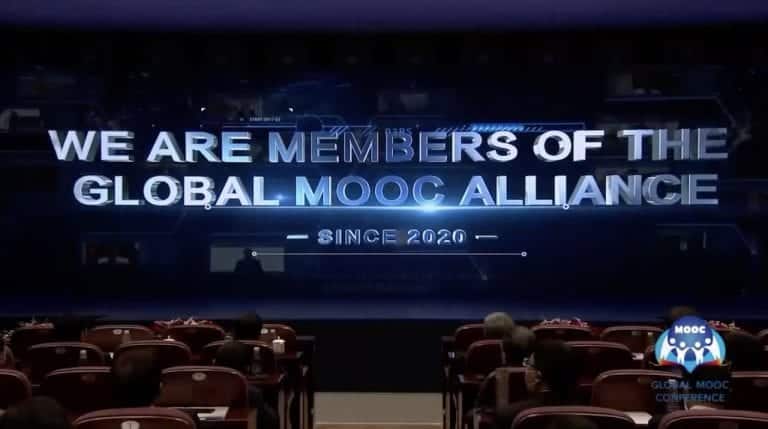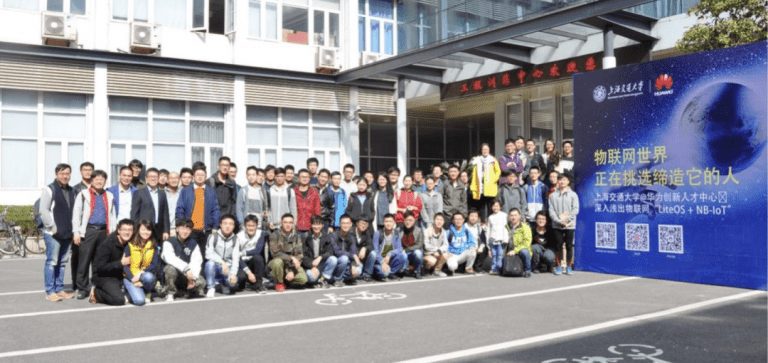The rapid evolution of digital technologies, including augmented reality (AR), virtual reality (VR), and artificial intelligence (AI), presents both opportunities and challenges for higher education institutions worldwide. Queen Mary University of London (QMUL) exemplifies a pioneering approach to integrating these technologies into its educational framework, emphasizing ethical considerations and inclusivity. This article explores QMUL’s contributions to digital education, as highlighted by President and Principal Colin Bailey’s remarks during the World Digital Education Conference, and further discusses the implications of these advancements for the broader academic community.
.png)
Introduction
The 21st century has ushered in a digital revolution, transforming the landscape of higher education. The World Digital Education Conference serves as a platform for stakeholders to discuss innovations and strategies for achieving the United Nations’ Sustainable Development Goals through digital education. At the forefront of this transformation is Queen Mary University of London, which has distinguished itself as a leader in ethical, cutting-edge digital education.
Queen Mary’s Innovations in Digital Education
Professor Colin Bailey, in his keynote speech at the conference, outlined QMUL’s latest developments in immersive digital learning. The university’s approach integrates AR, VR, and AI to create dynamic, engaging educational experiences. This commitment to digital innovation was particularly crucial during the pandemic, enabling continuity in education through mixed-mode and mixed-reality technologies. Notably, QMUL’s implementation of mixed reality in chemistry classes, which garnered the Pearson’s Higher Education Innovate Award in 2021, exemplifies its leadership in creating immersive learning experiences.
Enhancing Accessibility and Inclusivity through Technology
A significant aspect of QMUL’s digital education strategy is its focus on accessibility and inclusivity. The university’s partnership with Health Education England to launch a blended learning medical degree is a testament to this commitment, which led to the Excellence in Digital Health Education Award at the 2022 MedTech Awards in Malta. By leveraging VR, AI, and other technologies, QMUL aims to democratize access to medical education, catering to a more diverse student cohort. This initiative addresses the practical aspects of remote learning and healthcare simulations and underscores the potential of advanced technologies to break down traditional barriers in education.
Ethical Considerations in the Use of AI
.png)
The ethical use of AI in education is a critical concern for QMUL. Professor Bailey’s participation in a panel discussion on AI and digital ethics highlighted the opportunities and challenges posed by AI technology.
The university’s engagement with the Russell Group’s principles on the ethical use of AI reflects a broader commitment to responsible innovation. By involving students in the co-creation of digital tools and ensuring transparency in their application, QMUL sets a standard for ethical digital education practices.
“The major challenge is to ensure we go at speed in using these new technologies openly, appropriately and ethically, to enhance our education, and to equip our students with the skills that they require for an ever-changing job market. The key to doing all this is co-creating them across institutions but also directly with students.
Professor Bailey shared in an interview with CGTN
When it comes to AI tech and its ethical use, the Russell Group 24 Top Universities in the UK have developed a set of principles – but again it is important that we work with the students so that they understand the appropriate use of AI and that we use it to enhance and complement our education.”
Conclusion
Queen Mary University of London’s pioneering role in digital education serves as a model for institutions worldwide. By embracing emerging technologies and prioritizing ethical considerations, QMUL not only enhances the learning experience for its students but also contributes to the advancement of global education standards. As the digital landscape continues to evolve, the academic community must navigate these changes thoughtfully, ensuring that education remains inclusive, accessible, and ethically grounded.
Future Directions
The ongoing integration of digital technologies in education necessitates continuous research and dialogue among educators, policymakers, and technologists. Future studies should explore the long-term impacts of digital learning tools on student outcomes, as well as the ethical implications of AI and other advanced technologies in educational settings. Collaborative efforts across institutions and disciplines will be crucial in shaping a future where digital education upholds the highest standards of excellence and integrity.
Any thoughts or comments?
You can reach me at [email protected] or [email protected]. I look forward to continuing this exciting dialogue with you.
Enoch Wong,
OED (Online Education Dialogue) Host;
Senior Advisor of Global MOOC and Online Education Alliance (GMA)

![[OED Host Reflect] Crafting the Future of Online Education: A Call for Quality, Engagement, and Connection](https://n6m6d6c3.rocketcdn.me/wp-content/uploads/2023/12/Tatiana_Chernigovskaya-768x580.jpg)


![[OED Host Reflect] WANG Shuaiguo: “Do we still need subject-specific educators?”](https://n6m6d6c3.rocketcdn.me/wp-content/uploads/2023/06/IMG_9273-768x576.jpg)
